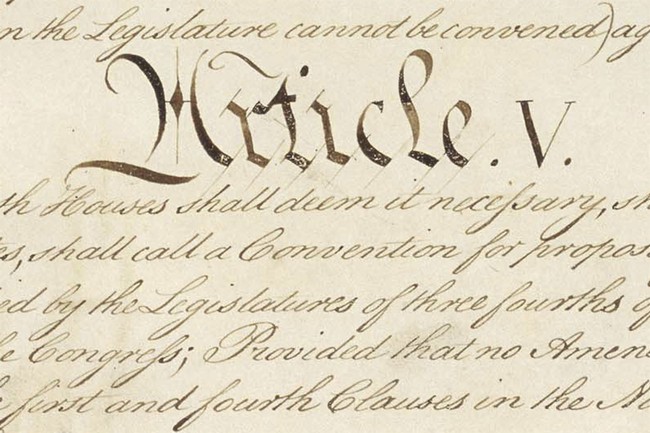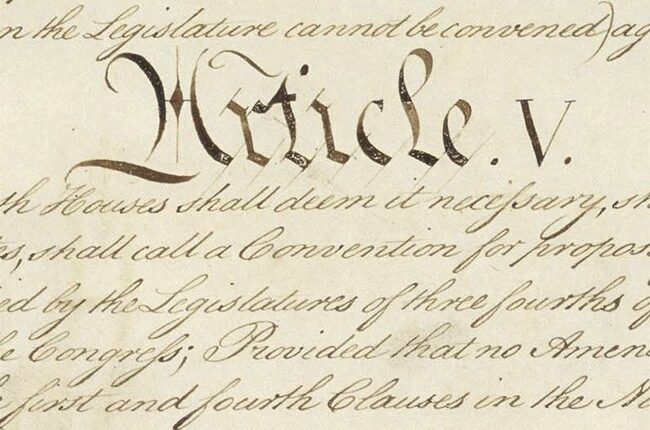Share this @internewscast.com

We live in a time where there seems to be a day to commemorate just about anything imaginable. Take, for instance, September 17, marked as National Apple Dumpling Day, National Professional House Cleaners Day, National Monte Cristo Day, among others.
While some may find these minor celebrations necessary, I hold the view that September 17 should always be remembered as Constitution Day.
On this date, 238 years ago, the U.S. Constitution was signed by 39 daring and intellectually gifted delegates at the Constitutional Convention held in Philadelphia.
Less than a year thereafter, the brand-new Constitution was ratified by nine out of the thirteen states, establishing it as the supreme law governing the United States of America.
Amazingly, the U.S. Constitution has stood the test of time. In fact, it is “the world’s longest surviving written charter of government.”
Even with its enduring legacy, numerous Americans remain sadly uninformed about the Constitution. Last year, nearly a third of adult Americans were unable to name all three branches of government as outlined in the Constitution. Around 20 percent couldn’t name a single right that the First Amendment protects, while a mere 7 percent could identify all five: freedom of speech, religion, the press, right to assembly, and the right to petition the government.
This is a sad situation; however, I must admit that I am far from surprised.
In recent years, civics education in the United States has been largely neglected. I can personally attest to this, having previously worked as a high school social studies teacher in public schools across Illinois and South Carolina.
Specifically, I taught courses such as American Government and U.S. History and the Constitution. While I was excited to teach my students about the wonderful aspects of our nation’s founding, I was definitely in the minority.
To my chagrin, the general narrative espoused by almost all my colleagues was that the U.S. Constitution was a hopelessly flawed and outdated document written by racist, sexist, slave-holding white men to perpetuate their privilege and power at the expense of all others.
That is quite a narrow view of the Constitution, not to mention historically inaccurate.
Make no mistake, the Constitution was not perfect. After all, it was crafted by fallible men who were keenly aware of their shortcomings and inherent flaws.
The Founding Fathers studied history. They learned from the errors of their elders. They knew that the government charter they created would not be perfect.
However, they did all that they could to learn from the mistakes of ancient Greece, Rome, and other short-lived republics in shaping what would eventually become the U.S. Constitution.
Men like George Washington, James Madison, and Alexander Hamilton compromised, cooperated, and eventually crafted a glorious legal framework for a new nation.
They foresaw a world in which fundamental rights and liberties would be protected by a limited, representative government.
They put in place ingenious mechanisms like checks and balances, separation of powers, the rule of law, republicanism, popular sovereignty, and federalism to ensure that power was decentralized.
They added the Bill of Rights to ensure that individual and state rights were inviolable. Even better, they knew that the Constitution they were creating would need to be revised in the future. So, they included different ways in which amendments to the Constitution could be enacted when necessary.
Nearly 240 years later, the U.S. Constitution remains the world’s greatest government charter. It has been used as a guiding light for numerous nations as they have sought to chart a similar course.
But the U.S. Constitution is unique. It cannot be merely copied and implemented. It is more than just words. It is an ethos, an ideal.
In its most simple form, the U.S. Constitution embodied the radical idea for its time that “We the People” can “form a more perfect Union, establish Justice, insure domestic Tranquility, provide for the common defense, promote the general Welfare, and secure the Blessings of Liberty to ourselves and our Posterity.”
Happy Constitution Day, America!
















